October 18, 2016
New CoreNet Global / HOK report explores impact of coworking on corporate real estate 0
The UK Chapter of CoreNet Global, in partnership with HOK’s WorkPlace practice, has released a new report that studies the impact of coworking from a corporate real estate (CRE) perspective. With coworking now one of the fastest-growing sectors of the commercial real estate market, the new report, Coworking: A Corporate Real Estate Perspective, examines the drivers of coworking from the demand and supply side, the industry risks and implications for corporate real estate, as well as information about the owners, coworkers and centres. The CoreNet Global / HOK Coworking report highlights the ideas that changing business priorities and the need to attract talented people, reduce real estate costs, improve speed to innovation and increase productivity are driving corporations to consider different workplace models, including on- and off-site coworking.









 Two of the most persistent and related structural problems facing the UK economy are the productivity and digital skills gaps. Earlier this month, the Office for National Statistics reported that there had been a further 1.2 percent fall in productivity. Part of the reason for this is that there is an underlying digital skills gap. According to a report from Barclays, nearly a third (31 percent) of working-age adults in the UK lack even basic digital problem-solving skills which places the country comfortably below the 37 percent average across OECD countries. Despite this, a mere 38 percent of UK employers offer their workers digital skills training, perhaps because on the other side of the coin, the UK ranks highly in what the report calls ‘digital empowerment’, which it defines as ‘the ability and desire to use one’s digital skills to work productively and creatively, and to have the opportunity to continually upgrade them to keep pace with changing technology’.
Two of the most persistent and related structural problems facing the UK economy are the productivity and digital skills gaps. Earlier this month, the Office for National Statistics reported that there had been a further 1.2 percent fall in productivity. Part of the reason for this is that there is an underlying digital skills gap. According to a report from Barclays, nearly a third (31 percent) of working-age adults in the UK lack even basic digital problem-solving skills which places the country comfortably below the 37 percent average across OECD countries. Despite this, a mere 38 percent of UK employers offer their workers digital skills training, perhaps because on the other side of the coin, the UK ranks highly in what the report calls ‘digital empowerment’, which it defines as ‘the ability and desire to use one’s digital skills to work productively and creatively, and to have the opportunity to continually upgrade them to keep pace with changing technology’.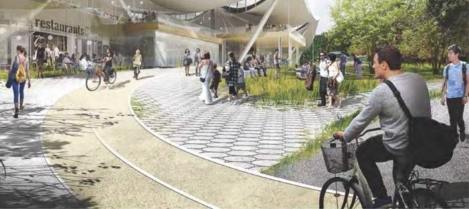
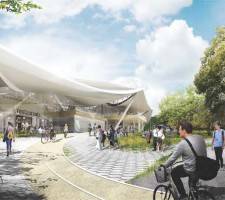 In March,
In March, 
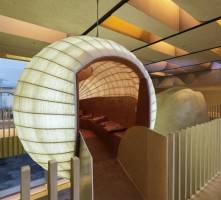 The shortlist for
The shortlist for 








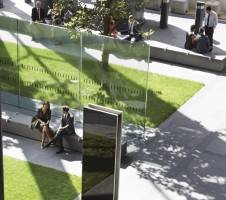
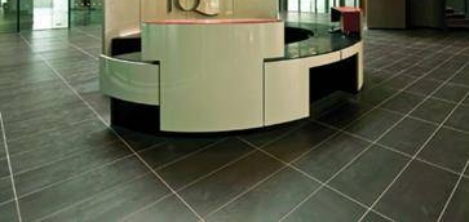
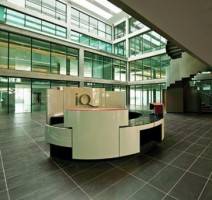
















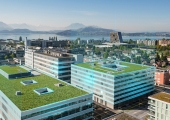

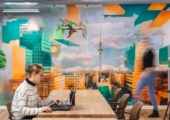

December 8, 2016
Book review…. HQ:Nerve Centres of the World’s Leading Brands 0
by Mark Eltringham • Case studies, Comment, Workplace design
More →